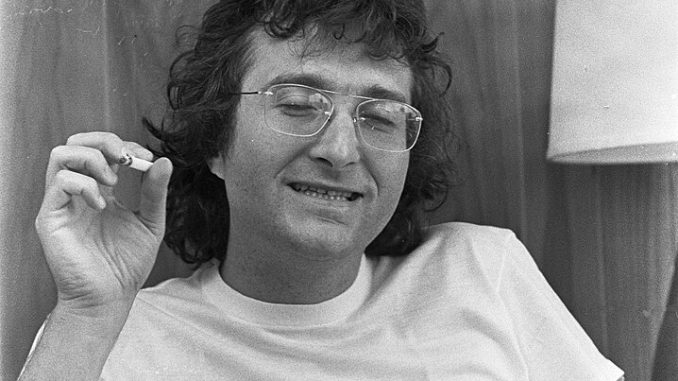
‘Rednecks’ was the opening song on Randy Newman’s 1974 album “Good Old Boys” and it was the initial kernel which inspired Newman’s examination of the American South on the disc. When it was released, the song shocked many by its liberal use of the N-word, although that shock would probably be minute compared to the outrage that would occur these days if a white singer-songwriter used it (imagine the furore on social media if I even use that word in this article). It’s taboo these days but Newman used the word appropriately as he inhabited the mindset of the American South where it was used in a casual racist manner. Newman, being the master of songwriting and sarcasm that he is, took pains in the song to point out that racism was as rampant in the North as it was in the South.
Newman’s original idea for the album was to explore the South via the lens of a typical Southerner called Johnny Cutler but as it progressed he abandoned that idea, casting his net wider to include songs about historical events (‘Louisiana 1927′ – about a Mississippi flood) and historical characters (‘Kingfish’ – written about Huey Long). The album stands proud as one of Newman’s best, recorded with the very cream of the L.A. crop (Ry Cooder, Andy Newmark, Jim Keltner, John Platania, Al Perkins and three-quarters of the Eagles on backing vocals) and it remains an acute insight into the racial divide in America.
The song itself began to take shape when Newman watched The Dick Cavett Show, one of the early chat shows on American television. The guests were Lester Maddox, the avowedly racist governor of Georgia, Truman Capote and Jim Brown, a black American football player, Maddox eventually stormed off the set after being mocked (you can see the clip here). Instead of just enjoying the spectacle, Newman considered how that episode would play out to supporters of Maddox, reinforcing their general idea that smart-ass New Yorkers considered Southerners as yokels. Hence he sang the song from the viewpoint of a proud Southerner who was appalled by the treatment of one of their own. He takes some poetic license in the opening lyrics, “Last night I saw Lester Maddox on a TV show with some smart ass New York Jew. And the Jew laughed at Lester Maddox and the audience laughed at Lester Maddox too.” (Cavett wasn’t Jewish). Newman’s protagonist goes on to list a bunch of Southern stereotypes (“We talk real funny down here, we drink too much and we laugh too loud”) while proclaiming that “We’re keeping the n****** down.“ Newman then delivers a killer twist as his redneck protagonist goes on to talk about the fate of Northern Negroes, ostensibly free but essentially put in cages in ghettos.
“Yes he’s free to be put in a cage in Harlem, in New York City
And he’s free to be put in a cage on the South Side of Chicago and the West Side
And he’s free to be put in a cage in Hough in Cleveland
And he’s free to be put in a cage in East St. Louis
And he’s free to be put in a cage in Fillmore in San Francisco
And he’s free to be put in a cage in Roxbury in Boston
They’re gatherin’ ’em up from miles around.”
He determines that the north is just as culpable as the South in keeping the N***** down, just in a different fashion.
Newman takes an incredibly difficult subject and delivers it with a fine sense of nuance, not condemning either side and he does so with one of his best performances where he delivers a great New Orleans-like swagger. On its release Rolling Stone magazine said in its review of the song, “‘Rednecks’ is a staggering song that is also topical: The week the record was released there were brutal racial incidents in Boston over school desegregation. Like all effective satire the lyrics are rooted in bare hostility and aggression, but the sprightly reeds and horn fills give this angry screed a sardonic ragtime air.
A 2017 article noted that, “Today, Newman seldom performs ‘Rednecks’ in concert because it is liberally infused with the n-word. “I don’t think I can do it now,” Newman said. “I used to make the speech that the North felt morally superior to the South, and I wanted them to see the fallacy of that. But people now know the problem is everywhere and you have virtually no excuse for using that word now, although I could bring out that song in Atlanta.””
One artist who did perform the song in later years was Steve Earle who recorded a version of it for a 2006 Randy Newman tribute album.


